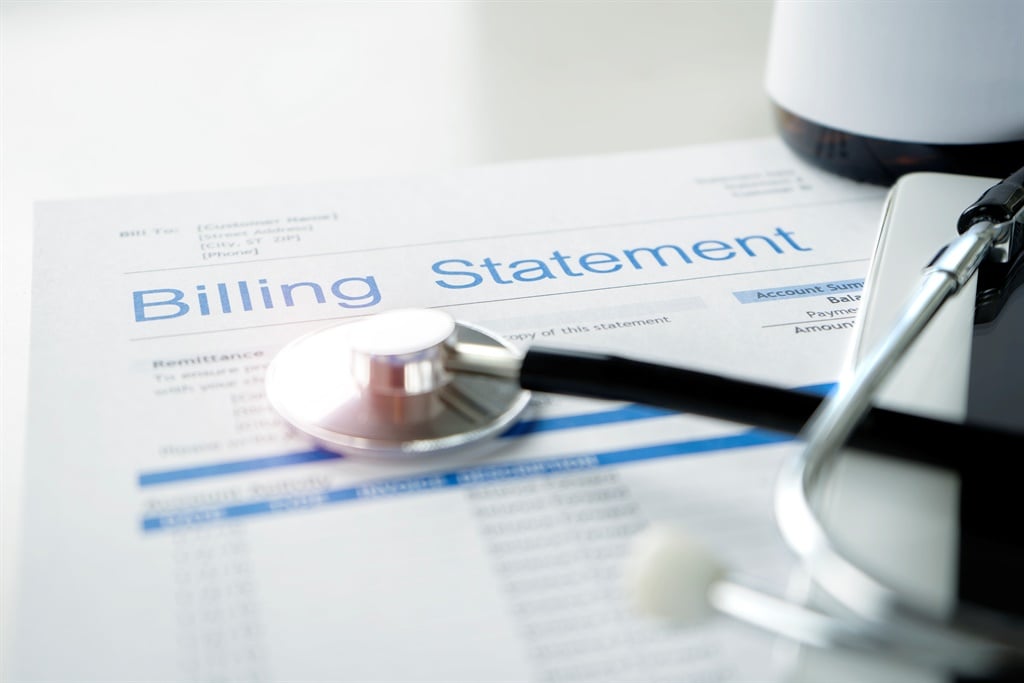
Medical aid costs shrink but Covid-19 costs are still unknown
by Riana de LangeMedical aids are saving a lot of money because elective surgeries and visits to doctors and specialists have dramatically declined as a result of the Covid-19 coronavirus pandemic.
On the other hand, the hospitalisation of one Covid-19 patient costs R85 000 (excluding hospital costs). This is about three times the cost of typical hospital admissions.
Ryan Noach, the CEO of Discovery Health, said that the virus would be with us for some time, so its impact on medical aids this year and next year should be taken into account.
Depending on the extent of the pandemic, Covid-19 screening, testing and hospital treatment during this time could lead to an additional cost of between R816 and R3 561 per beneficiary across all medical aids.
That could cost the country’s medical aids between R7.3 billion and R31.8 billion, Noach said on Wednesday.
It is, therefore, too soon to say whether the decline in medical aid claims during the national lockdown will lead to a saving for the funds this year, and to lower increases in member contributions for next year.
Discovery Health administers 19 medical aids covering about 3.5 million beneficiaries. The biggest fund under its administration is Discovery Health Medical Scheme.
The cost associated with putting someone on a ventilator is R169 525 for a Covid-19 patient in ICU, and about R92 000 in a high-care unitNoach statistics
According to Noach, their statistics show that 23% of confirmed Covid-19 cases are admitted to hospital and 4.5% to ICU.
The cost associated with putting someone on a ventilator is R169 525 for a Covid-19 patient in ICU, and about R92 000 in a high-care unit.
Noach said they have had one case where the hospitalisation of a patient who required a ventilator cost more than R800 000.
By Wednesday, Discovery Health had 529 cases of Covid-19-related hospital admissions. At R85 000 per case, that amounts to just less than R45 million in payouts.
Other major medical aids told City Press’ sister publication, Rapport, that far fewer claims had been paid out during the lockdown, because only emergency or urgent operations were carried out under level 5 of the lockdown. Hospitals were also emptier.
However, the medical costs associated with Covid-19 are still unknown.
Damian McHugh, the CEO of Momentum Health Solutions, said that Covid-19-related hospital admissions were expected to rise as the lockdown was relaxed.
The peak of the virus is expected in South Africa in August or September.
Emile Stipp, head actuary of Discovery Health, said it had sufficient reserves to cover worst-case scenarios. Medical aids are required by law to keep 25% of their contributions in reserve for eventualities like Covid-19.
Read: Covid-19 will be covered by all medical aid plans
Discovery has about R20 billion in reserve.
According to Craig Comrie, the CEO of Profmed, savings by medical aids so far this year must be seen in light of the expected rise in the cost of personal protective equipment being used by hospitals, doctors and dentists.
This will have an impact on the costing models and projection models for the next couple of years. Funds will battle to limit costs and keep premiums affordable as a result of all the long-term uncertainty around the virus, which is why everyone is still hoping for a vaccine, he said.
Comrie added that annual increases in medical aid contributions were also supplemented by the returns funds make on their investments, which have been adversely affected by the poor performance of the markets and by declining interest rates.
Profmed, for example, lost more than R100 million for the year to April.
“We expect that any decrease in claims for elective operations will not nearly make up for this loss, unless the markets recover very quickly.”
But if medical aids are paying out fewer claims, it means that hospitals and specialists will also feel the effect of Covid-19.
Johann Serfontein of the consultancy Healthman, which advises the SA Private Practitioners’ Forum, said that medical claims data for about 80% of the 3 500 specialists it advises show that ophthalmologists, in particular, had been affected by the lockdown.
Claims by ophthalmologists were 80% lower last month than in March – from R153 million in March to R30 million last month.
He said there was evidence that claims by certain specialist groups last month were as little as 4% of what was claimed in February and March. Some surgical specialist groups’ claims were about 27% of the normal level.
Serfontein said surgical disciplines such as orthopaedic and general surgery, those that do facial procedures, as well as ear, nose and throat specialists, have been hit hard by the ban on elective surgery.
The Council for Medical Schemes does not release payment numbers for elective and emergency procedures, but it does for hospital costs. According to the 2018/19 annual report, expenditure on hospital services made up 37.1% (R64.3 billion) of the total benefits of R173.3 billion paid out by medical aids in 2018.
But if medical aids are paying out fewer claims, it means that hospitals and specialists will also feel the effect of Covid-19Riana De Lange
Adam Pyle, CEO of Life Healthcare in South Africa, said nationwide occupancy in its hospitals during March and last month was at 69% and 40%, respectively, compared with 72% and 70% in March and April last year.
About 50% of cases in Life Healthcare hospitals may be regarded as elective.
McHugh said elective procedures that had been postponed could increase rapidly over the next few months, so eventual costs could be similar to last year.
But Serfontein said that it was unlikely that operation volumes for the remainder of the year would return to normal, because measures intended to prevent Covid-19 require theatres to be disinfected between operations and ventilated for between 20 and 30 minutes. It will, therefore, be impossible to use these theatres at full capacity.